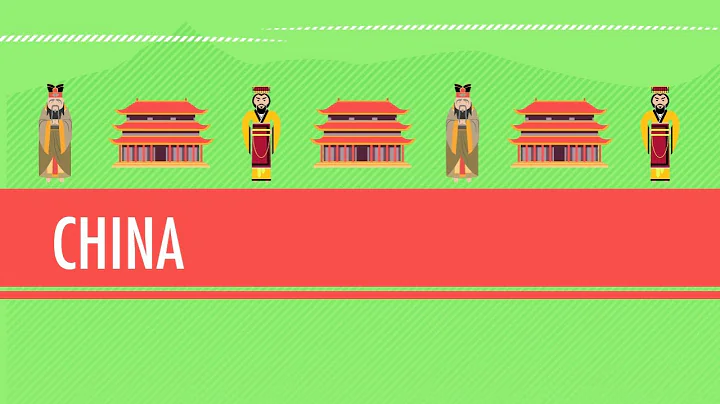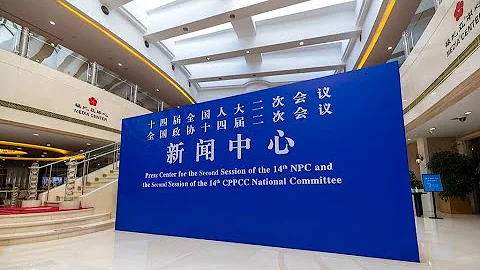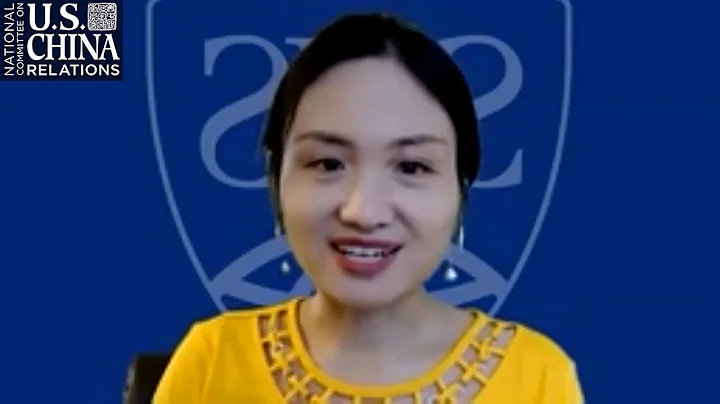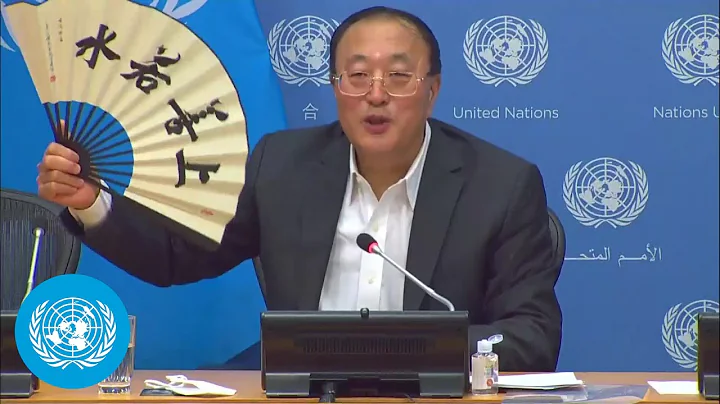
Yuan Shikai
Yuan Shikai is a controversial figure in modern Chinese history. The reformers said that he "traitored his friends for glory", and the revolutionaries called him a "one-man thief" and a "big thief of the country". Those who admired him said that he was "a capable minister in governing the world." Li Hongzhang In his last words before his death in 1901, he said that Yuan Shikai was "Looking around the world, there is no one more talented than Yuan Shikai." Throughout Yuan Shikai's life, I think Yuan Shikai was a cunning person with modern ideas at the time, a powerful figure, and a product of the times.
In the late Qing Dynasty, the Han people in the Qing court, in order of seniority, should be: Zeng Guofan , Li Hongzhang, and Yuan Shikai. So my title is "Yuan Shikai obtained the results of the 1911 Revolution in and ", not "Stealing the results of the 1911 Revolution" as written in the textbook.

Wu Changqing
Yuan Shikai, a native of Xiangcheng, Henan Province, his uncle Yuan Jiasanguan served as the governor of water transportation in the Qing Dynasty and contributed greatly to the suppression of the Taiping Heavenly Kingdom and the Nian Army. Yuan Shikai entered school as a young boy, but failed the imperial examination twice, and later took refuge with his uncle Yuan Jiasan 's sworn brother Wu Changqing. Wu Changqing served as the Shandong Assistant to the Qing Army, and also served as the Admiral of the Zhejiang and Guangdong Navy. North Korea was a vassal state of the Qing Dynasty. Wu Changqing was appointed by the court to lead troops to help the Korean feudal dynasty put down civil strife. Yuan Shikai followed Wu Changqing to show his talents in North Korea and was reused to make a fortune. Later, Yuan Shikai was appreciated and promoted by Li Hongzhang, an important minister in the late Qing Dynasty. After the defeat of the Sino-Japanese War, the Qing Dynasty asked Yuan Shikai to organize and train the new army in the small station. A total of six towns were trained in the small station. Except for the first town, which was controlled by Manchurian Tieliang, the other five towns were all under Yuan Shikai's orders.
Yuan Shikai knows how to get things done, and he is good at winning people's hearts. When he was the governor of Shandong, he identified the Boxer Rebellion as a cult and drove the Boxers out of Shandong, so that when the Eight-Power Allied Forces invaded China, no war broke out in Shandong. Yuan Shikai developed industry and commerce in Shandong and opened Shandong University (today Shandong University ). Yuan Shikai later became the governor of Zhili and the minister of the Beiyang Navy. In Tianjin, Yuan Shikai established China's first police force. Yuan Shikai prepared and built the Beijing-Zhangjiakou Railway, the first railway designed and built by the Chinese themselves. In the Qing Dynasty, the Governor-General of Zhili controlled the capital Beijing and nearby Hebei, Tianjin and other places, and had a very important and prominent position. The Beiyang Army was stationed in Beijing and Tianjin to defend the heartland of the Qing Dynasty. Many of the generals of the Beiyang Army were Yuan Shikai's confidants.

Duan Qirui (left), Feng Guozhang (right)
Yuan Shikai gave his subordinates the impression of a "buddy", "boss" and "loyal brother". When subordinates come to him, if you like to eat braised pork , he will let you eat as much as you want. He himself seems to have a very simple life. As a native of Henan, Yuan Shikai likes to drink glutinous rice and eat steamed buns. In fact, his life is not simple. The soup he cooks for glutinous rice is fish soup made from crucian carp from the river in his hometown. There were no refrigerators at that time, so in order to keep the fish fresh, lard was used to transport the fish from Henan to Beijing. While he was drinking the paste, he sprinkled it with pepper-like powder, but it was not pepper noodles, but deer antler powder . Yuan Shikai died of uremia before he was 60 years old. This may be related to his excessive supplementation and unscientific life. Feng Guozhang is the great-grandfather of crosstalk actor Feng Gong. He and Duan Qirui are Yuan Shikai's right-hand men. When Feng Guozhang's wife passed away, Yuan Shikai immediately acted as a matchmaker to marry his family's private tutor to Feng Guozhang.
In 1907, the Qing Dynasty saw that Yuan Shikai was too powerful and promoted him to the central government as minister of military aircraft and minister of foreign affairs. When his status was raised, his military power was deprived of him. It was an overt promotion and covert demotion. In 1908, Empress Dowager Cixi and Emperor Guangxu passed away one after another. Emperor Guangxu came to the throne after the death of Emperor Tongzhi, the biological son of the Empress Dowager Cixi. He was the son of the sister of the Empress Dowager Cixi, who was the aunt of Emperor Guangxu. During the reign of Emperor Guangxu, Empress Dowager Cixi held real power for a long time. Emperor Guangxu once wanted to gain power through the reform . After the reform coup, Empress Dowager Cixi imprisoned Emperor Guangxu in Yingtai, Zhongnanhai. In 1908, Emperor Guangxu died one day earlier than Empress Dowager Cixi. Empress Dowager Cixi was 73 when she died, while Emperor Guangxu was 37 when he died. Because of this, people suspected that Empress Dowager Cixi poisoned Emperor Guangxu before her death.After the deaths of Cixi and Guangxu, Emperor Guangxu's younger brother Zaifenghtml's 43-year-old son took the throne. This was the last emperor Puyi . During the coronation ceremony, the young Puyi peed while sitting on the golden throne and cried to go home. The adults around him coaxed him and said: (The ceremony) "It's almost over! It's almost over!" These words became a prophecy, and the Qing Dynasty after Puyi was emperor for three years was over. After Puyi ascended the throne, Zaifeng became the regent. Because Zaifeng was jealous of Yuan Shikai's informant during the Reform Movement, the Empress Dowager Cixi launched the 1898 Coup and imprisoned his brother, Emperor Guangxu. He forced Yuan Shikai to resign and even almost killed Yuan Shikai.
Yuan Shikai resigned and returned to Huixian, Henan to live in seclusion. After the Revolution of 1911 broke out in Wuchang , the Qing Dynasty mobilized its troops south to suppress the revolutionary military government in Wuhan. However, the army was basically controlled by Yuan Shikai's confidants. It was difficult for the Qing Dynasty to mobilize new troops, so the Qing Dynasty had to recruit Yuan Shikai again. First, Yuan Shikai was appointed governor and imperial envoy of Huguang . Yuan Shikai felt that he did not have enough power and refused to accept the appointment because he was ill. The Qing Dynasty finally appointed Yuan Shikai as Prime Minister of the Cabinet. With great power in hand, Yuan Shikai came out.
In the south, although the revolutionaries established the Provisional Government of the Republic of China in Nanjing on New Year's Day in 1912, the strength of the revolutionaries was limited. When the Nanjing Provisional Government was in the most difficult time, it only had two yuan in its bank account. Soong Ching Ling worked as a secretary to the interim president Sun Yat-sen, and even his salary could not be paid. Moreover, the revolutionaries are highly factional and disorganized. The problem of intellectuals is very common among revolutionaries. The intellectuals look down on each other. You disobey me and I disobey you. At that time, only Yuan Shikai was the most powerful figure in China. Yuan Shikai used to advocate the New Deal, which gave people the impression that he had advanced ideas. Yuan Shikai was dismissed from his post and was suspected of being persecuted by the old forces of the Qing Dynasty, which increased his net worth.
Sun Yat-sen decided to cede the position of provisional president of the Republic of China to Yuan Shikai. Sun Yat-sen prompted the Provisional Senate to formulate the "Provisional Constitution of the Republic of China" and changed the presidential system to a responsible cabinet system. This means that documents signed by the president must be co-signed by the prime minister to be effective, limiting the power of future president Yuan Shikai. Sun Yat-sen abdicated to Yuan Shikai and made three specific demands: 1. Support the republic; 2. Force the Qing emperor to abdicate; 3. Take the throne in Nanjing. The first request was easily fulfilled by Yuan Shikai. He sent a message to support the Republic and that was it. Yuan Shikai held the actual power of the Qing Dynasty at that time. He instigated his trusted soldiers to go outside the Qing Dynasty palace and shout: Down with the monarchy! Support the Republic! Then Yuan Shikai went to intimidate the head of the Qing Dynasty, saying that he was afraid that the soldiers who supported the republic would cause chaos and would not be able to control order in the future. When the army entered the palace, the emperor's life might not be saved. Yuan Shikai gave the head of the Qing Dynasty another soft word and said, "Retreat. If you do, I will guarantee your financial enjoyment, and I will also guarantee that you will still live in the palace, and you will still be the emperor in the palace." The people at the helm of the Qing Dynasty felt that the situation was over and announced their abdication. On March 12, 1912, the Qing Dynasty officially announced the abolition of the imperial system. Yuan Shikai's second condition is completion. The Nanjing Provisional Government sent Cai Yuanpei, Zhang Shizhao and other celebrities to Beijing to welcome Yuan Shikai to Nanjing to take office as the provisional president. The Chinese people all know that a tiger will be bullied by a dog when it falls in peace. How could Yuan Shikai come to Nanjing and be restrained by the revolutionary forces? Yuan Shikai told the southern representatives who came to greet him that they had good food, drink and good accommodation, but excused themselves for being busy with business and delaying their journey. Then he instigated his troops to attack the residences of southern representatives in the middle of the night, asking the troops to scare the southern representatives but not to hurt them. The army also needs to shout support for the monarchy. Then he went to comfort the southern representatives and complained that the old forces in Beijing were too strong. If he went south, the Qing emperor might be able to restore the imperial system. In March 1912, the Nanjing Provisional Government finally agreed to Yuan Shikai's inauguration as the Provisional President of the Republic of China in Beijing. In this way, Yuan Shikai became the biggest beneficiary of the bourgeois revolution.



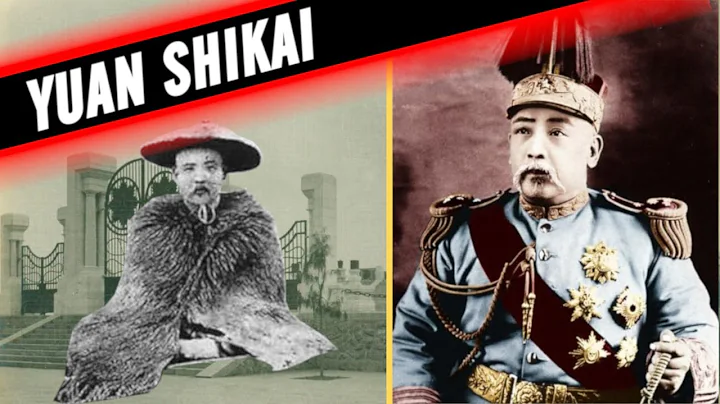

![The Fall of Emperor Yuan Shih-kai [Eng Sub] 蔡锷北伐袁世凯 - DayDayNews](https://i.ytimg.com/vi/oD-eJJrOBKE/hq720.jpg?sqp=-oaymwEcCNAFEJQDSFXyq4qpAw4IARUAAIhCGAFwAcABBg==&rs=AOn4CLBYxwGiLYHlCD13YEpLZOK0GgeD4A)




